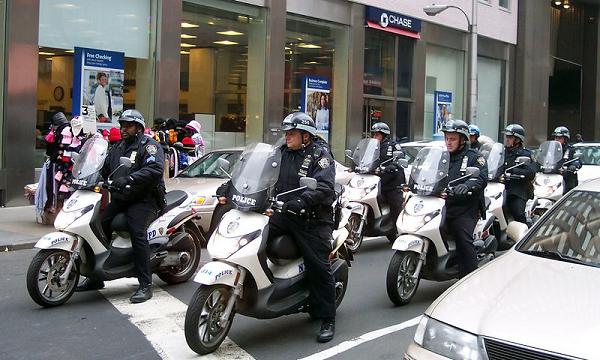
Photo by: Uris
The Citizens Union wants to empower the Civilian Complaint Review Board to prosecute cases of police misconduct and give subpoena power to the Commission to Combat Police Corruption.
If the city’s charter revision process were a movie, the main action would revolve around term limits and nonpartisan elections, the two issues that have aroused the most passion and are considered most likely to end up before the voters this November.
So when the 111-year-old good government group Citizens Union on Wednesday issued its recommendations to the Charter Revision Commission, the headline was that the group had flipped from an earlier position and endorsed nonpartisan elections.
But this movie has subplots, and Citizen Union’s opinions on them could help frame those issues in the coming months–and possibly years–that this charter review occupies.
Among 16 sets of recommendations, the Union called for retaining the public advocate, giving the office an independent budget and granting it appointments to the Board of Standards and Appeals and the Conflicts of Interest Board. It also endorsed an independent budget for borough presidents, but did not give the “beeps” more power in the land use process, which some incumbents sought.
It also wants to strengthen the “fair share” provisions that were in the 1989 charter revision but failed to protect low-income communities from being overburdened by waste plants and trash transfer stations.
Perhaps most strikingly, the Union wants to empower the Civilian Complaint Review Board to prosecute cases of police misconduct; presently, the NYPD gets to decide what to prosecute. And the CU calls for giving subpoena power to the Commission to Combat Police Corruption.
The charter revision commission could put questions to the voters this November, or wait until elections in 2011 or 2012. It’s also possible the commission will divide its considerable workload between 2010 and a subsequent year.
Whenever it acts, some observers have expressed doubt that the commission will tackle anything other than term limits, an issue that has been unsettled since Mayor Bloomberg and a divided City Council overturned two voter referenda and loosened those limits in 2008. On that issue, Citizens Union calls for retaining the current limit three, four-year terms limit for councilmembers but shifting back to the limits of two, four-year terms for mayor, comptroller, public advocate and borough presidents.
While supporters of nonpartisan elections–especially those affiliated with the Independence Party–have packed the commission’s hearings, a bid for nonpartisan elections failed in 2003. Commission members have given mixed signals on whether they plan to revisit it.
Even less likely to get commission action are the other topics that have been placed on the table, like whether to retain the public advocate, enhance community boards or reform ethics monitoring. While disparate in detail, these issues all reflect the same dynamic: Different groups vying for a bigger share of the city’s finite power. Borough presidents want more power at the expense of the mayor. Some community board members seek authority that might otherwise go to the borough presidents. Citizen Union’s recommendations would have the charter revision parcel out power, giving the players some–but not all–of what they asked for.
The Charter Revision Commission has yet to announce its schedule for its final round of hearings before deciding whether to propose ballot questions this fall.








